Rokoko
Rokoko (Rococo) reflecting the dress and culture of the first half of the 18th century.
Based on the early designs of Adolf Iosifovich Charlemagne (1826-1901) this pack reflects the dress and culture of the first half of the 18th century. Rococo is an ornamental and theatrical style of architecture, art and decoration which began in France in the 1730s. It was also a movement of extravagance, elegance and refinement, characterized by pastel colors, organic motifs, and light but plentiful ornamentation. The Russian Empress Catherine the Great was an admirer of the Rococo. The dress and style of the court cards reflect the elegance of this period.
The cards are strongly inspired by other Rococo packs, especially that made by Dondorf and today mostly known as Baronesse (Whist no. 160). The pack has been published both in standard and patience size since 1911.
Standard size
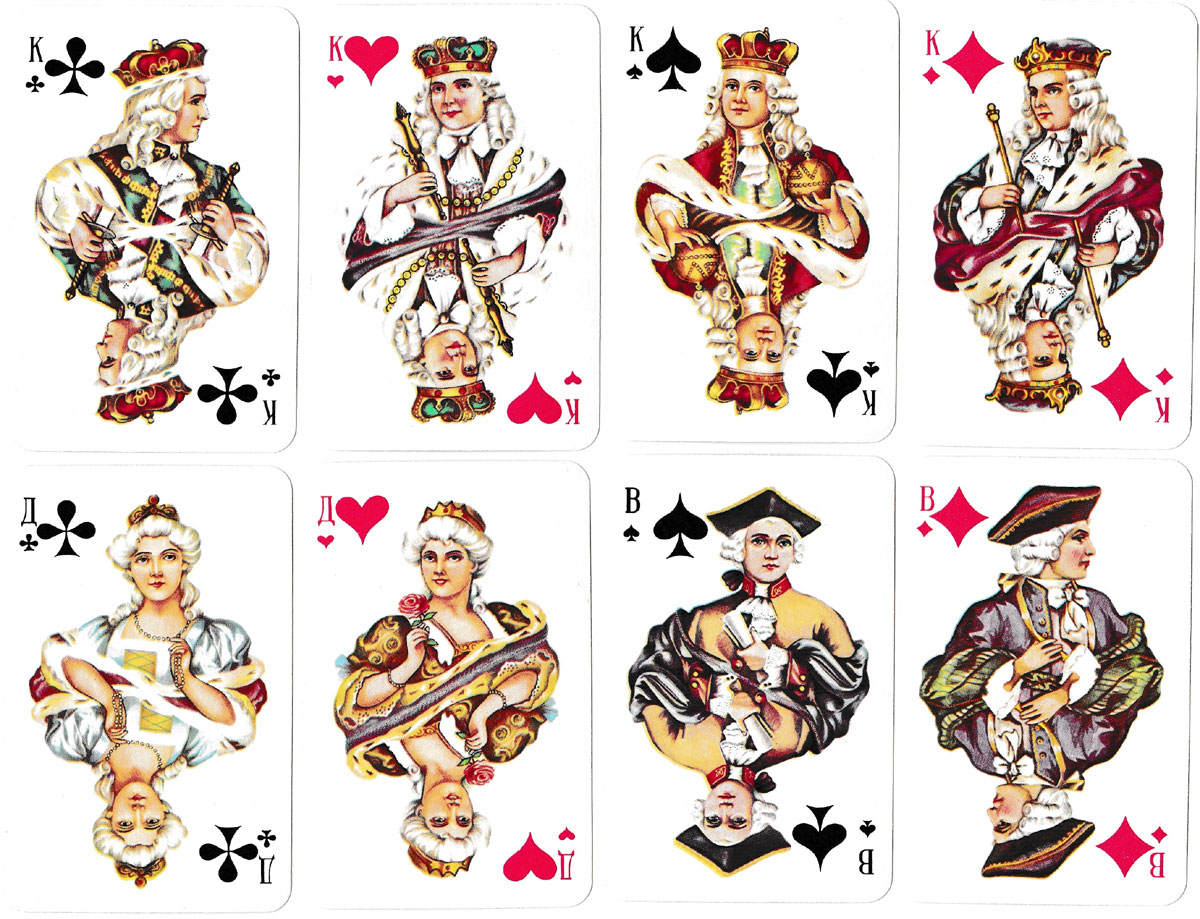
Above: standard size ‘Rokoko’ playing cards.
Patience size
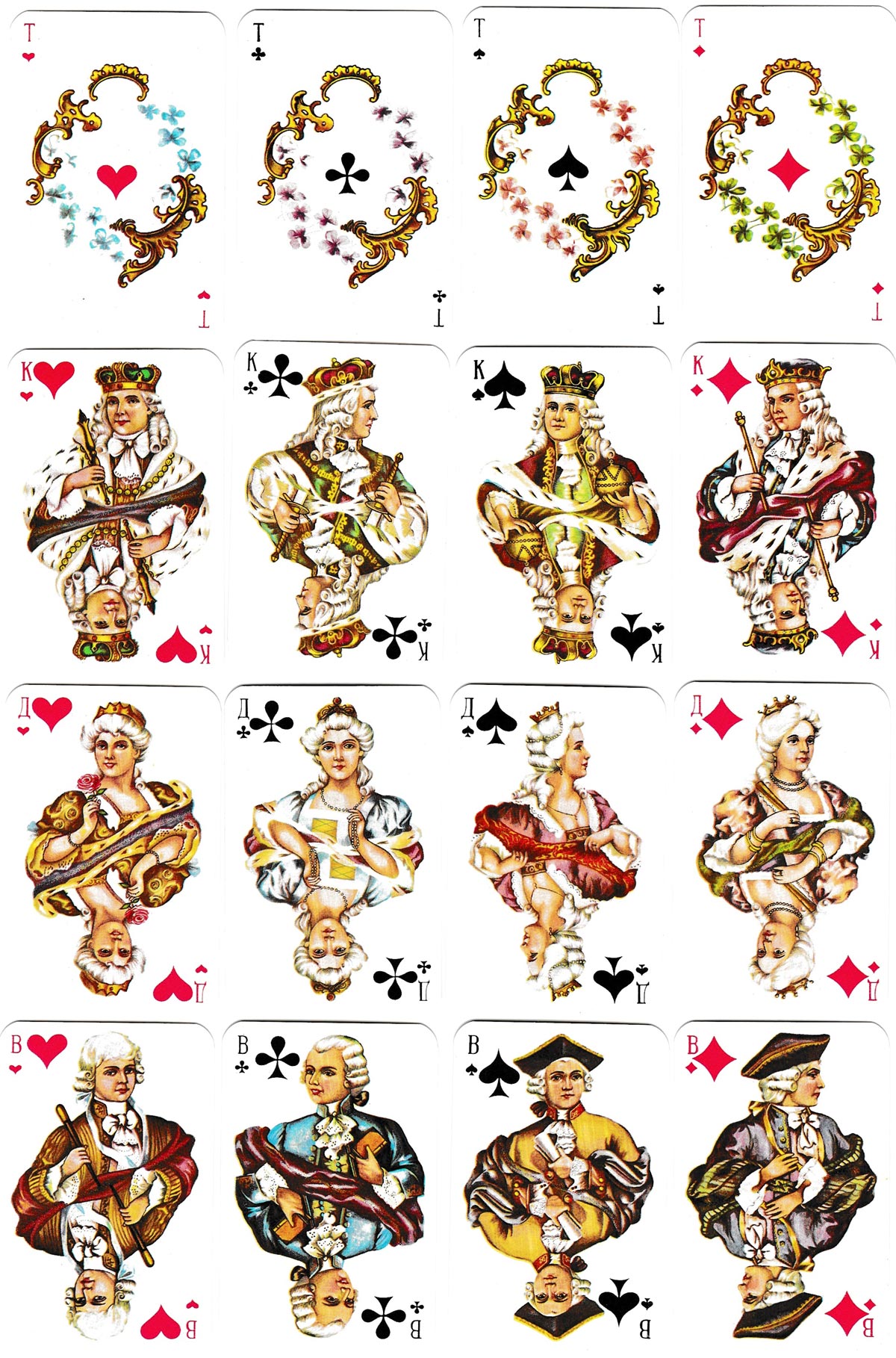
Above: patience size ‘Rokoko’ playing cards, 1911.
Note from Roddy Somerville
Here is another version of the Rokoko pack. All the cards have a wood grain effect in the background (front and back) which helps to give them a 'softer' appearance. This printing is from 1966. 36 cards. R.S
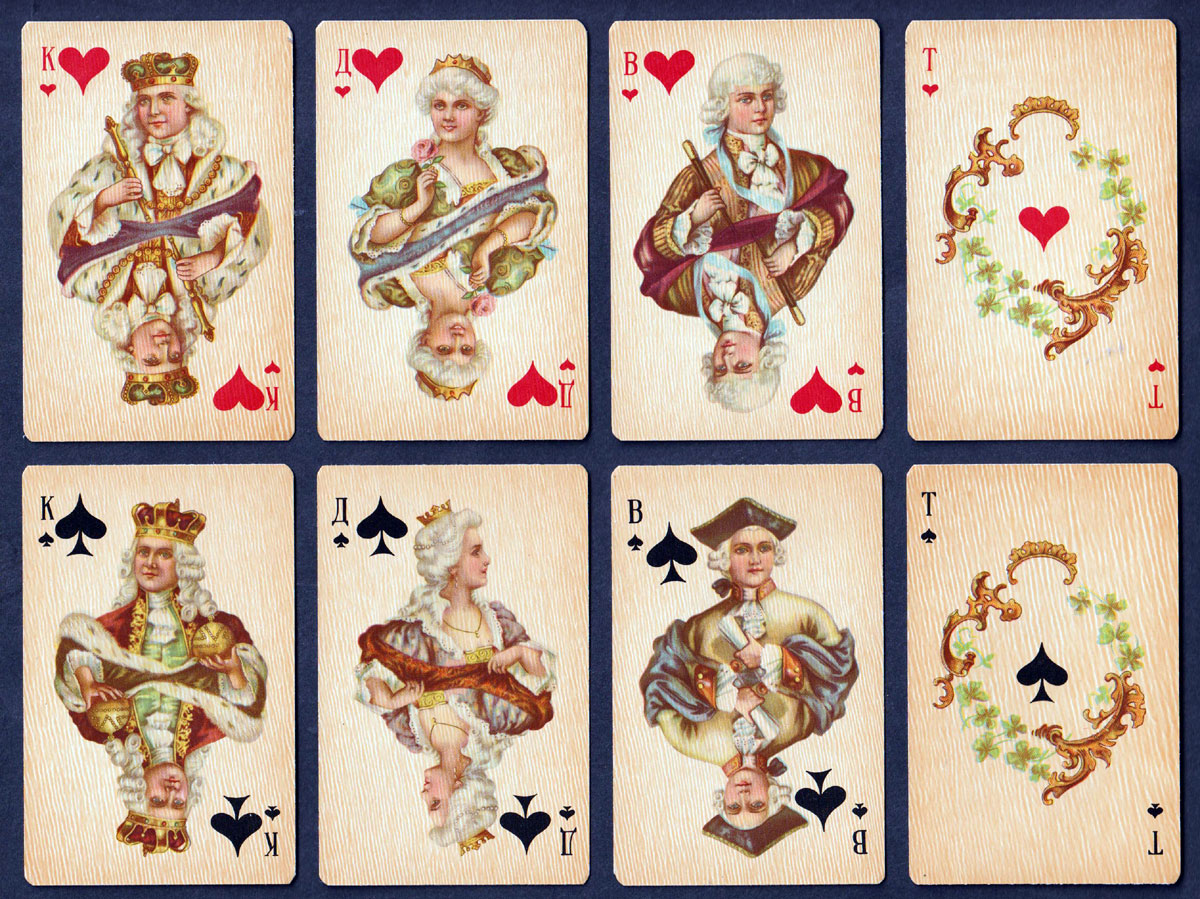
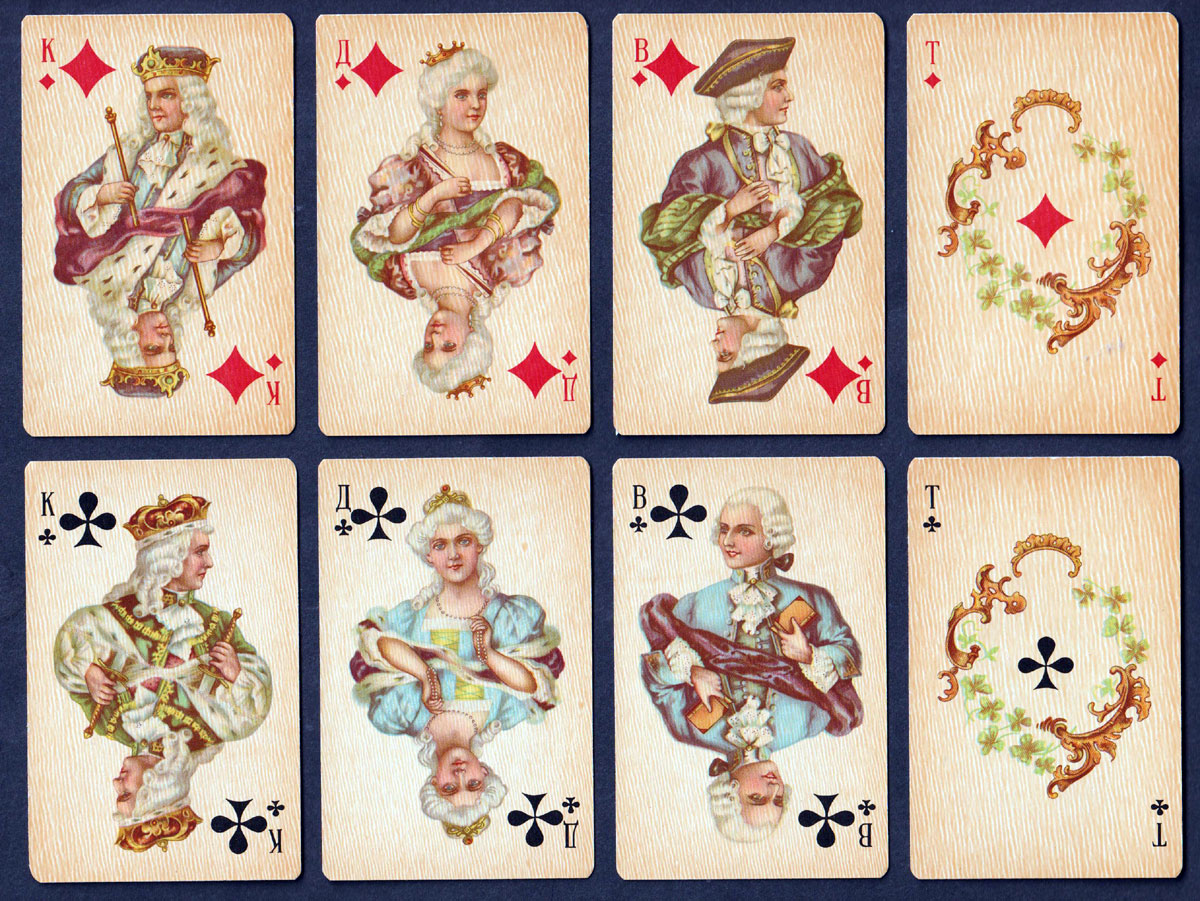
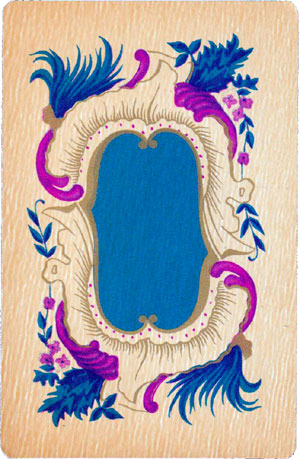
Above: Rokoko playing cards from Russia, 1966. 36 cards.
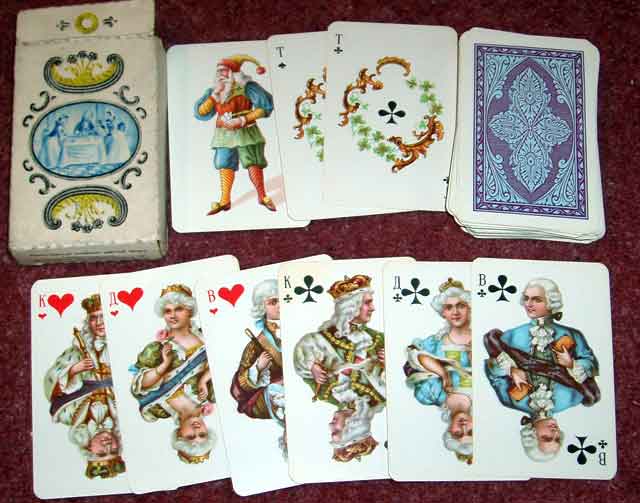
Above: another edition of Rokoko playing cards (undated) including the joker and tuckbox.
By Peter Burnett
United Kingdom • Member since July 27, 2022 • Contact
I graduated in Russian and East European Studies from Birmingham University in 1969. It was as an undergraduate in Moscow in 1968 that I stumbled upon my first 3 packs of “unusual” playing cards which fired my curiosity and thence my life-long interest. I began researching and collecting cards in the early 1970s, since when I’ve acquired over 3,330 packs of non-standard cards, mainly from North America, UK and Western Europe, and of course from Russia and the former communist countries.
Following my retirement from the Bodleian Library in Dec. 2007 I took up a new role as Head of Library Development at the International Network for the Availability of Scientific Publications (INASP) to support library development in low-income countries. This work necessitated regular training visits to many sub-Saharan African countries and also further afield, to Vietnam, Nepal and Bangladesh – all of which provided rich opportunities to further expand my playing card collection.
Since 2019 I’ve been working part-time in the Bodleian Library where I’ve been cataloguing the bequest of the late Donald Welsh, founder of the English Playing Card Society.

Leave a Reply
Your Name
Just nowRelated Articles
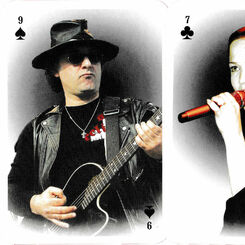
Castle Rock Club
Castle Rock Club playing cards featuring Russian rock stars and musicians, c. 2000.
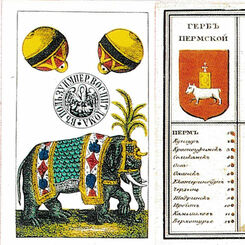
Russian Playing Card Monopoly
The Russian Playing Card Monopoly was established in March 1798 with all revenue going to support th...
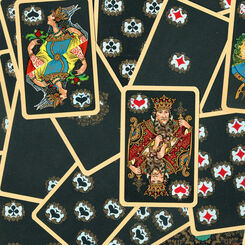
Russian Playing Cards
Playing cards were known in Muscovy as early as the last quarter of the sixteenth century.
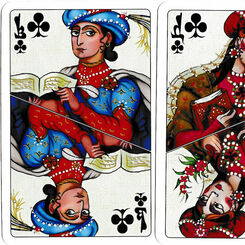
Kashmir Playing Cards
Kashmir playing cards designed by Lev Liberman and printed by Printissa, Saint Petersburg, 2005.
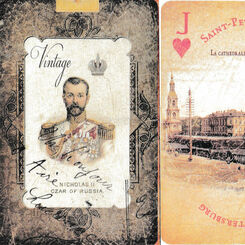
Saint Petersburg vintage playing cards
Saint Petersburg vintage photography playing cards.
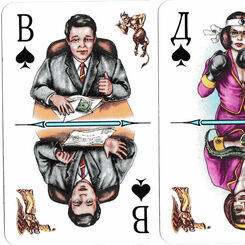
Madam Luck
“Madam Luck” playing cards designed by B. Adziev, 1998.
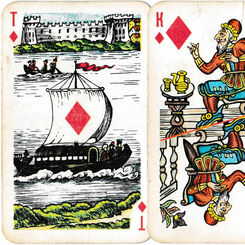
Lubok playing cards
Lubok playing cards designed by Victor M. Sveshnikov. Russia, 1984.

Soviet propaganda posters
Propaganda posters of the Soviet Union.
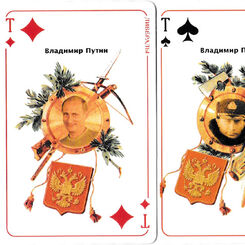
Russian Federation
Russian Federation pack featuring leading political figures of the time, c.2000.
![Komandirskie [Commanders] Komandirskie [Commanders]](/core/cache-wopc-thumbs/var/www/wopc/production/www/images/countries/russia/komandirskie-0.45cc333d.jpg)
Komandirskie [Commanders]
‘Komandirskie’ military-themed playing cards from Russia, 1997.

Peterhof souvenir playing cards
Peterhof souvenir playing cards (Petergof suvenirnye igral’nye karty) published by Mednyi Vsadnik (B...
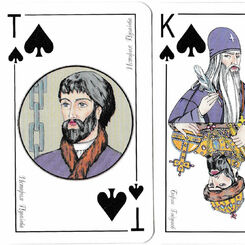
Pushkin
Pack designed by M. Rydaeva celebrating the 200th anniversary of Alexander Pushkin’s birth.
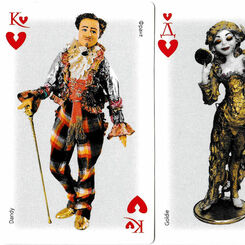
Dolls Gallery
Dolls Gallery / Galereia kukol : karty igral’nye / published by Varvara Skripkina, 2003.

Treasures of the Russian Museum
Treasures of the Russian Museum / Russkii Muzei : suvenirnye igral’nye karty.
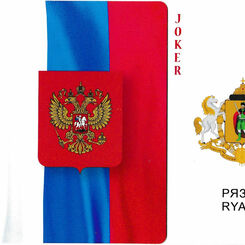
Russian Cities Coats-of-Arms
Rossiia / Municipal Coats-of-Arms of Russian Federation.
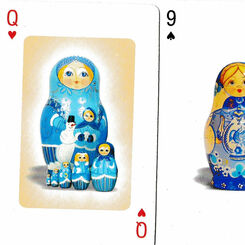
Matryoshka playing cards
The first nested doll set was carved in 1890.
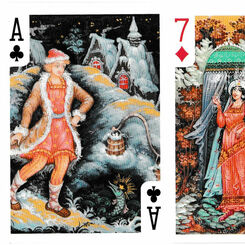
Palekh and Kholui lacquer miniatures
Palekh and Kholui lacquer miniatures.
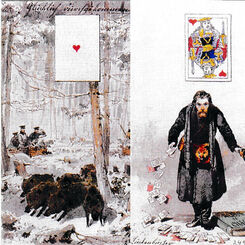
Hunting playing cards
Hunting playing cards / “Okhotnich’i karty” with illustrations by the court artist Mihály Zichy.
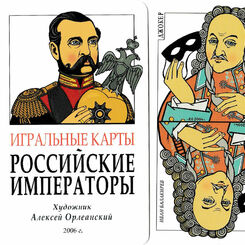
Russian Emperors
Russian Emperors playing cards / “Rossiiskie imperatory karty igral’nye” produced and illustrated b...
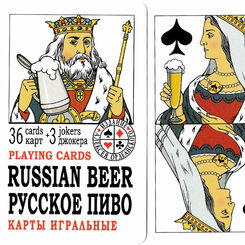
Russian Beer
Russian Beer playing cards / “Russkoe pivo karty igral’nye” produced in 2006
Most Popular
Our top articles from the past 60 days


 Your comment here. Your comment here. Your comment here. Your comment here. Your comment here. Your comment here. Your comment here. Your comment here. Your comment here. Your comment here. Your comment here. Your comment here. Your comment here. Your comment here. Your comment here. Your comment here. Your comment here. Your comment here. Your comment here. Your comment here. Your comment here. Your comment here. Your comment here. Your comment here. Your comment here. Your comment here. Your comment here. Your comment here. Your comment here. Your comment here. Your comment here. Your comment here.
Your comment here. Your comment here. Your comment here. Your comment here. Your comment here. Your comment here. Your comment here. Your comment here. Your comment here. Your comment here. Your comment here. Your comment here. Your comment here. Your comment here. Your comment here. Your comment here. Your comment here. Your comment here. Your comment here. Your comment here. Your comment here. Your comment here. Your comment here. Your comment here. Your comment here. Your comment here. Your comment here. Your comment here. Your comment here. Your comment here. Your comment here. Your comment here.




















